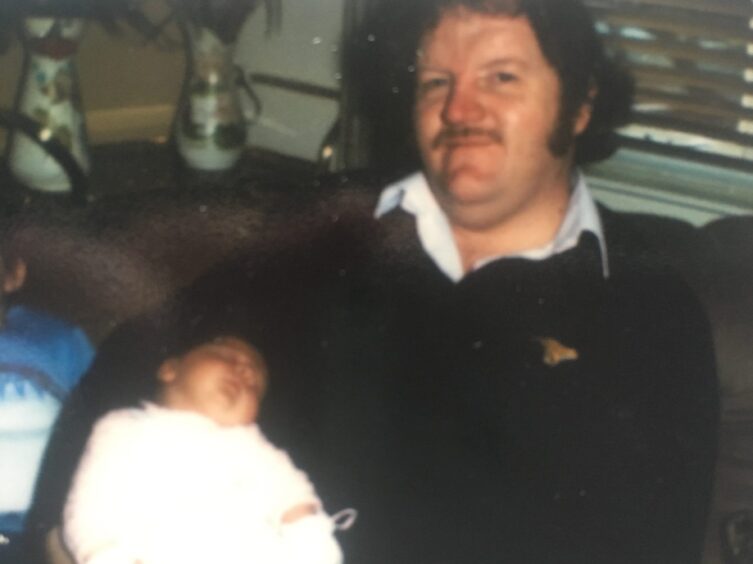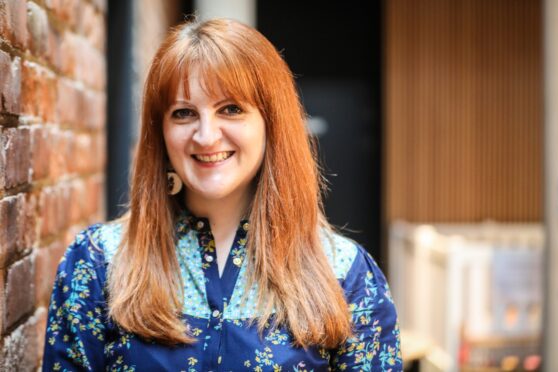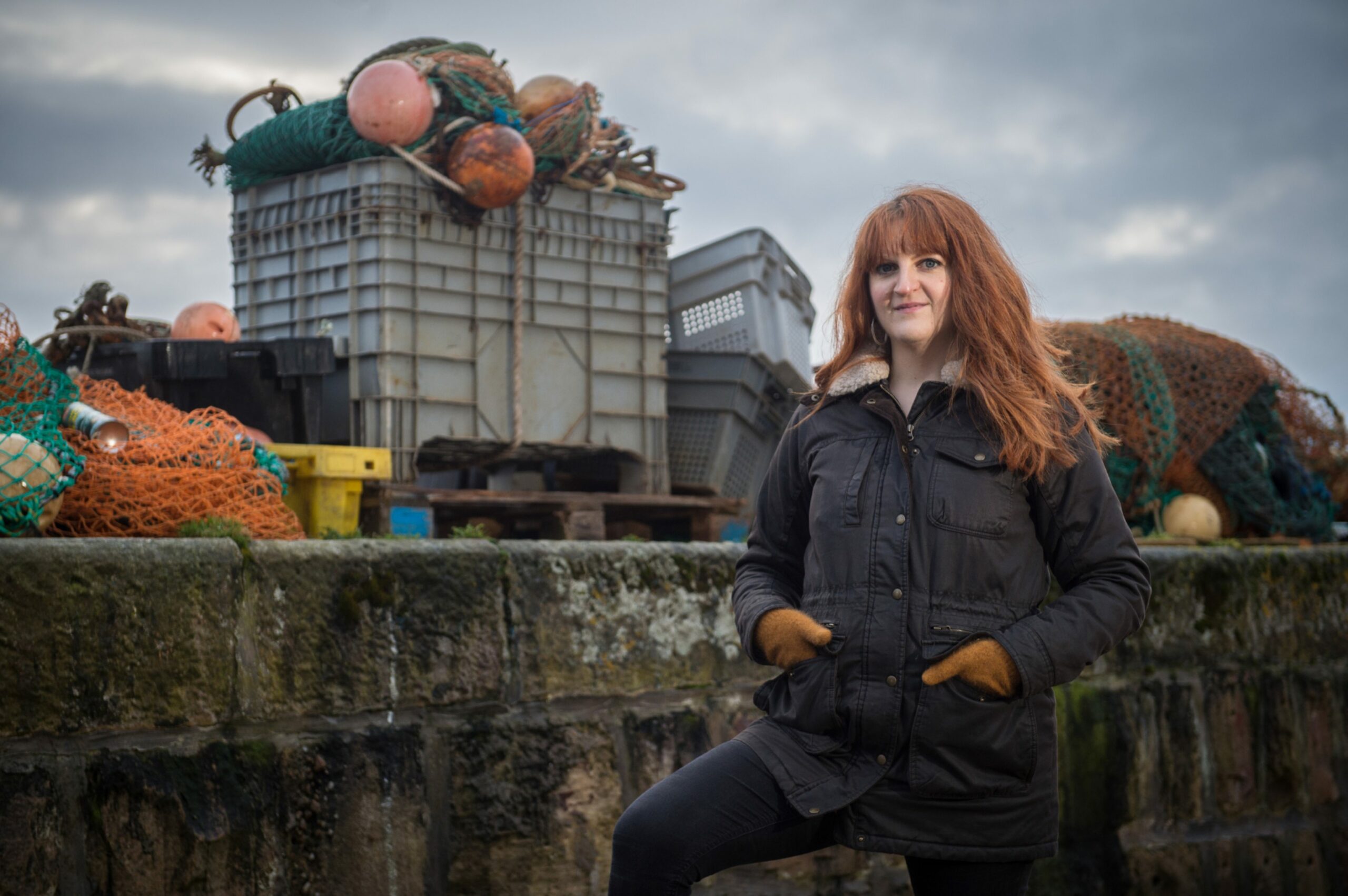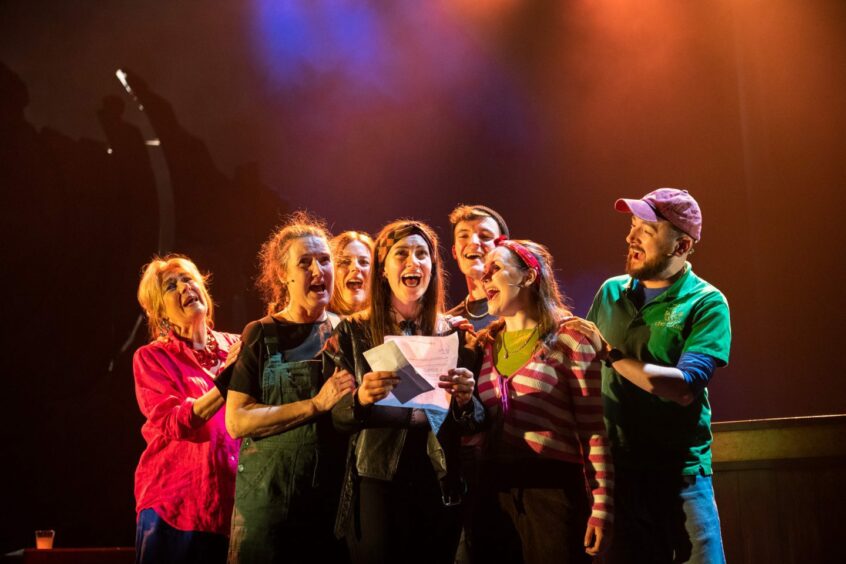Morna Young can barely remember a time when she wasn’t asking questions about love, loss and being a proud “Burghead quine” in the modern world.
Her dad, Donnie, perished at sea when she was just five years old, a tragedy which meant she was forced to cope with the pain of bereavement and grief far earlier than any child should have to countenance.
And yet, while her mum worked as a library assistant in Elgin, books and reading offered her a form of escapism, whilst encouraging her to dream of a world beyond her roots, and she found myself inspired to write journals and short stories.
Morna’s new adaptation of Sunset Song
That was in the 1980s. And now, as an acclaimed playwright, musician and actress, this versatile character has packed a prodigious amount into her cv, whether performing at the Scottish Parliament, being named Writer of the Year at the 2019 Scots Language Awards, collaborating with fellow Moravian Kevin McKidd – one of the stars of Trainspotting – on a Speyside album, creating scripts for River City, or bringing a new adaptation of Lewis Grassic Gibbon’s Sunset Song to a stage near you next month.
Oh, and there’s also a play in the offing about Aberdeen’s The Grill pub and how a courageous group of female trade unionists defied a sexist sign – “No Ladies” – and made their way onto the premises in the city’s Union Street in 1973.
Morna has never forgotten the frisson and fervour of finding similarities between herself and the novel’s heroine Chris Guthrie and spoke passionately about the dilemma of those who revel in speaking Doric, but move elsewhere to study, and end up being in a strange halfway house where they have a split identity.
She said: “Sunset Song mirrored my own torn relationship between education and home, striking an emotive chord at an impressionable age and formative time. When I left home, I faithfully carted my copy of the book onward into life, moving to Sheffield, then London, then Glasgow. Through Chris Guthrie, I understood the inferiority complex I felt as a working-class Scot as I began to move in different circles.

Morna identified with Sunset Song’s heroine
“As life has progressed, the notion of the Two Chrisses has continued to echo in my soul. I remember arriving at drama school with Doric words in my mouth, as other students looked blankly at my attempt to find an English equivalent.
“Then I would return home to the north-east and suddenly feel ‘posh’ amongst my Doric-speaking family as I navigated using a new, and sleek tongue. I was part of two worlds, but often felt as if I belonged in neither.
“This feeling stayed with me throughout my life and, as my playwriting career progressed, I often thought about adapting Sunset Song. I wondered about a musical version, or a version really rooted in a contemporary storytelling modes, or a version that opened up Chris’s inner world.
“A version of this arrived in 2020, when I was working with the Scots Language Centre on their Scots Wark project (
scotslanguage.com/scots-warks
). During those initial pandemic days, I found myself missing home more than ever, and I felt the draw once more of the Two Chrisses.
Sunset Song was part of Morna’s life
“The final piece of the puzzle toward this year’s production [which will tour Dundee, Aberdeen, Inverness and Edinburgh from April to June] arrived when Andrew Panton [artistic director at Dundee Rep theatre] called and asked about my relationship to Sunset Song, because he was thinking about the possibility of a new adaptation.
“I don’t think he quite expected my extended monologue about my love for the book, my recent Scots Warks project, and the ideas that have been buzzing ever since I first read the book. But everything clicked into place.
“It really amazes me that Sunset Song has been such an important and integral part of my life, and I feel really, really privileged to have this opportunity. But, as much as it has been part of my journey, I know this isn’t necessarily a unique story – so many people love the book, have a connection and feel the draw of this part or that part.
“I mean, it has literally been voted Scotland’s favourite novel. Many feel a close and personal relationship with the story, which is most often read in their formative years, and that’s a lot of pressure to navigate.”
Drawn to the tale of The Grill
Yet, if there is any sense of apprehension surrounding the critical and public reaction to her adaptation, Morna has sufficient verve and vigour to rise to the challenge.
She knows she can’t include every nuance and plot development from Grassic Gibbon’s book – or we would be talking about a running time which would make Christopher Nolan’s films seem like TV commercials – but she has focused on the novel’s protagonist, the human embodiment of Mother Nature.
It’s easy to understand why Morna has also been drawn to the tale of The Grill, a scenario which unfolded when the Scottish Trade Union Congress was held at the Music Hall in Aberdeen and subsequently hit the global headlines.
Jacquie Blair was attending the event and, en route from the bus to the hall to meet fellow delegates, she passed The Grill and noticed the sexist sign on the door.
Unsurprisingly, she was furious, but also perceived the irony of the situation. After all, tackling discrimination against women was at the top of the conference agenda.
And even now, more than 50 years later, parts of the controversy still resonate.
As Morna said: “I’ve been interested in The Grill bar protest for a long time, and loved the Kirsty Wark documentary series, The Women Who Changed Modern Scotland.
“Aside from the key protest itself and the fact women weren’t welcome in the bar, I was also particularly drawn to the trade union element of the story.
‘This story has eveything’
“Jacquie Blair, a shop steward from Greenock who was only 17 at the time, is the brilliant woman who had spotted the ‘No Ladies’ sign on the way to the conference and who initiated the decision to storm the pub.
“I’m talking to Jacquie as part of my research, and will be hosting further research sessions with Aberdeen Arts Centre as I move into developing the work more fully. When I first start work on any play, I’m looking for ideas or themes that spark a response in me; and this story has everything.
One suspects Morna will never be short of inspiration or commissions. Not when she is bringing such a unique perspective to so many diverse personalities and stories. The more pressing issue might be when she decides to take a break.
She said: “Sunset Song marks my third main stage production in a row [after her work on the Runrig musical The Stamping Ground and a Scottish adaptation of The Snow Queen], so it has been quite an exhausting and high-pressure 12 months.
Writing for River City
“I’ve also been involved with River City for the past few years, which I love – especially writing for Aberdeen’s own Joyce Falconer who plays Roisin in the show – and I’m enjoying working across both stage and screen.
“I feel really privileged to do what I do and I’m really fortunate to love my job, but I really feel the need to find a better work/life balance, particularly this side of the pandemic. I’m just a bit more tired than I used to be!”
Tickets for Sunset Song are available at:
uktw.co.uk/Tour/Play/Sunset-Song/T025013387/
Five questions for Morna Young
- What book are you reading? Sunset Song (again and again) for work and, very late to the party, the Elena Ferrante “My Brilliant Friend” series for fun.
- Who’s your hero/heroine? My father, who was lost at sea when I was a child.
- Do you speak any foreign languages? French at school, and a tiny bit of Gaelic.
- What’s your favourite music/band? I feel the most emotional connection to Runrig (especially after writing The Stamping Ground), but I also adore Bowie and Fleetwood Mac.
- What’s your most treasured possession? A photograph of my father, and my beautiful violin. [She also plays fiddle, flute, percussion and clarsach].




